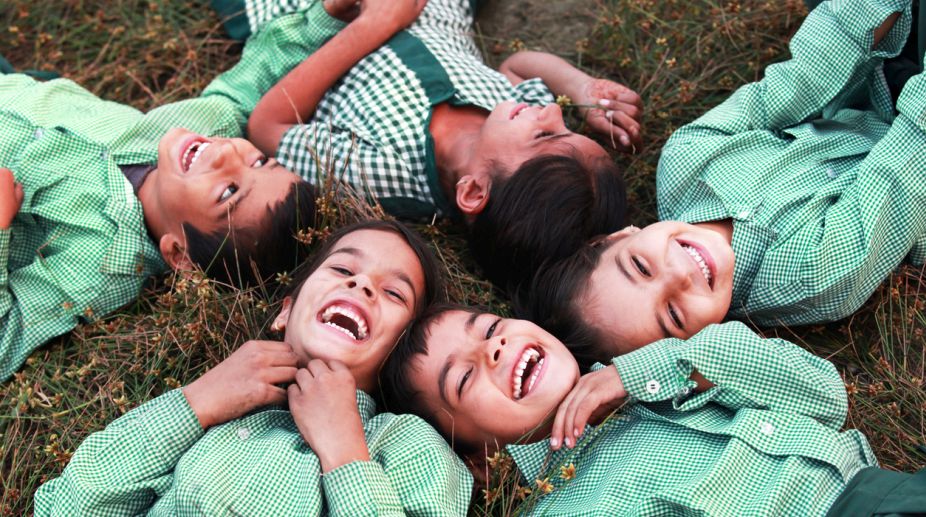How neurodevelopmental treatment is helping kids with Down syndrome
Neurodevelopmental treatment is a holistic approach to helping children suffering from Down syndrome, said an expert on World Down Syndrome Day on Thursday.

(PHOTO: Getty Images)
From the age old system of Gurukuls to the present system of institutionalised schooling, much has changed in terms of the process of imparting education and it’s no news that earlier what used to be a transformational experience for students has now become a mere transactional business.
It’s in this age of corporatised education, that Katha has come up with a beautiful initiative impacting the lives of lakhs of under privileged children ~ through stories. There is no doubt that stories, since time immemorial have been a beautiful medium of imparting and acquiring knowledge; take for instance the amount one has learnt through Amar Chitra Kathas and the stories narrated by grandparents.
Unfortunately, a superset of India’s youth ~ more than 300 million children in India have never even heard stories, let alone acquire knowledge through them. The 300 Million initiative launched by Katha lab School is one step towards making stories and learning a reality for these children. Katha is an NGO that has been transforming the lives of underprivileged children for nearly 30 years now.
Advertisement
Started in 1988, by a young and passionate woman, Geeta Dharmarajan, Katha has succeeded in touching about 90 lakh lives till date and is aiming to touch 300 million more through this initiative of theirs.
This NGO doesn’t just believe in “educating” children, but believes in changing their lives by providing them health care, sanitation and quality education facilities.
Apart from providing basic literacy to children, Katha has also provided skilled training to around 29,000 individuals in Information Technology and has taught social activism and income generation to over 3,70,000 women.
For Dharmarajan, this noble thought emerged in 1988 while she was walking in the library of the University of Pennsylvania. Glancing through the thousands of books, she thought to herself, “There is so much of good literature in the world and so many beautiful languages, but what’s the point of all of it if millions in our country can’t even understand it.”
That marked the beginning of the journey of Katha. Registered with a nominal amount of Rs 25,000 in 1989, the NGO hasn’t looked back since then.
Today, headed by Dharmarajan, a Padma Shri award holder, Katha has a team of around 8,000 writers, translators, illustrators and contributors, has 30,000 volunteers at the grassroot level and has touched over 950 communities in Delhi alone.
When asked about the funds, Dharmarajan smiled to herself and said, “If one has purpose, things somehow always end up happening. There were times when I used to wonder how I would pay the next month’s salary. And then somehow from one source or the other, donations used to turn up and the next month’s salaries were looked after.”
According to a UNESCO report of 2016, there are 300 million children in India’s schools and nearly 50 per cent of them can’t read well. Katha aims to bring all children to reading for fun and for meaning, starting with primary school education with their 300 million challenge.
“If our country leaves these children behind, where are we heading as a country? There is so much entrepreneurship, skills at different levels ~ all of which require reading. Not even 50 per cent of our kids have access to primary schools. Our responsibility doesn’t just end with voting for the government, we need to make the government work,” said Dharmarajan.
She also highlighted the stigmatisation associated with what they are doing and how parents in rural areas are apprehensive about getting their children to learn as that would mean a reduction in the family income. To tackle this issue Katha started Kasam 6-7 years ago. Kasam aims to make the parents of these children a part of the initiative by conversing with them and making them aware of the importance of the investment in learning and education.
In about 252 slums, parents have formed groups to ensure that all their children go Katha Schools; when two parents are off to work, the third one takes care of the children and ensures that all of them attend school. With Kasam and many more such initiatives, Katha is making quality education a dream come true for thousands in India.
Advertisement